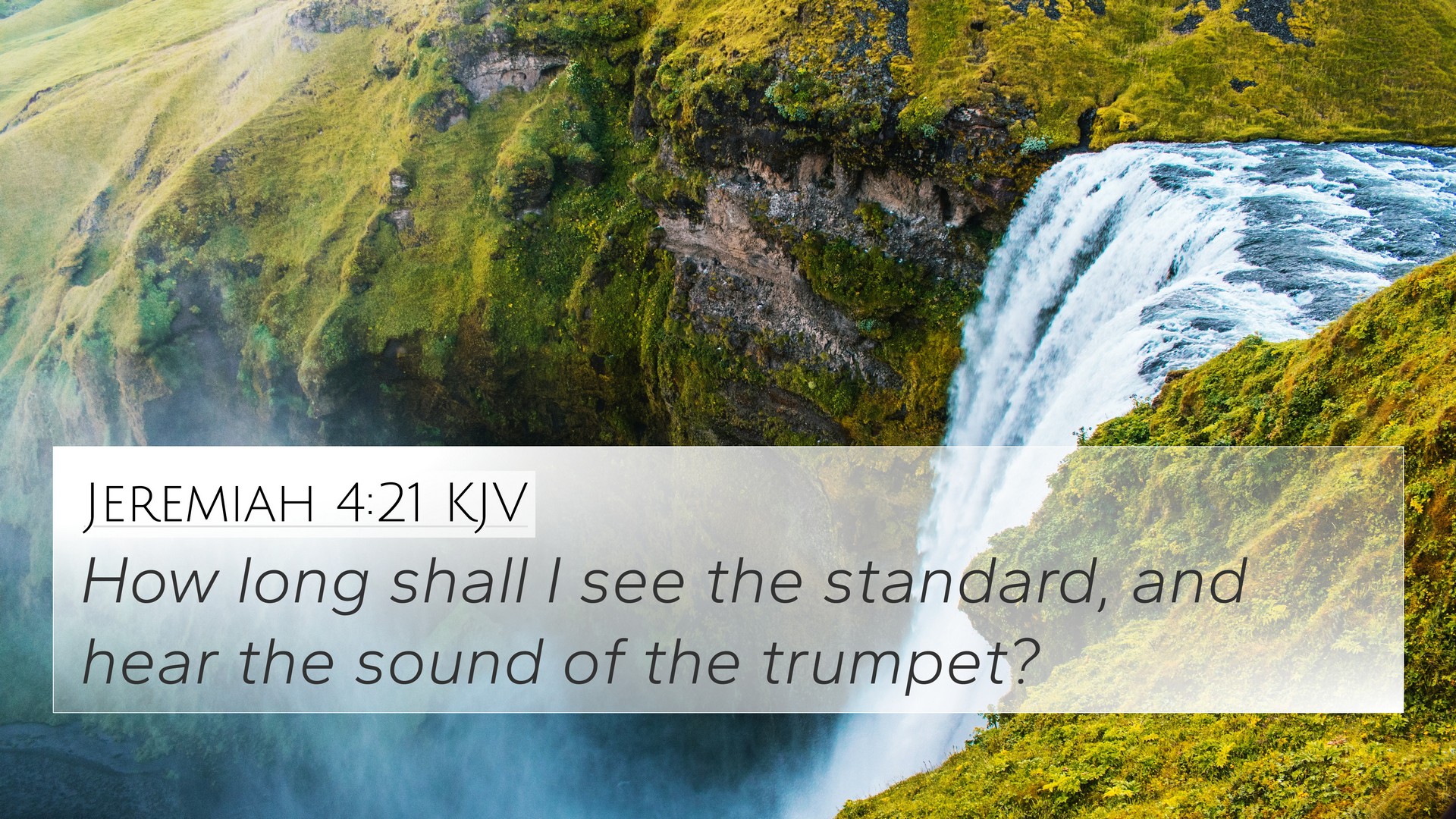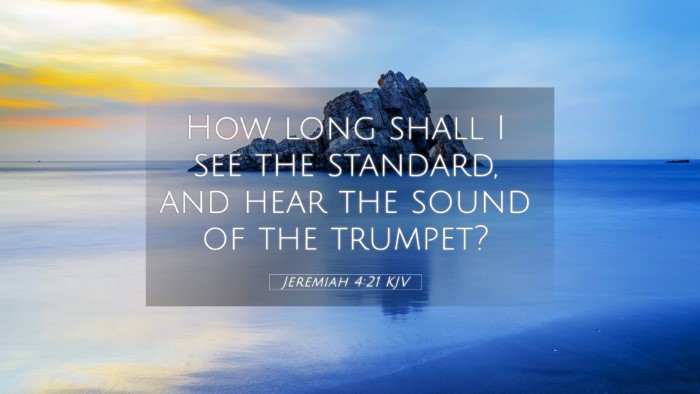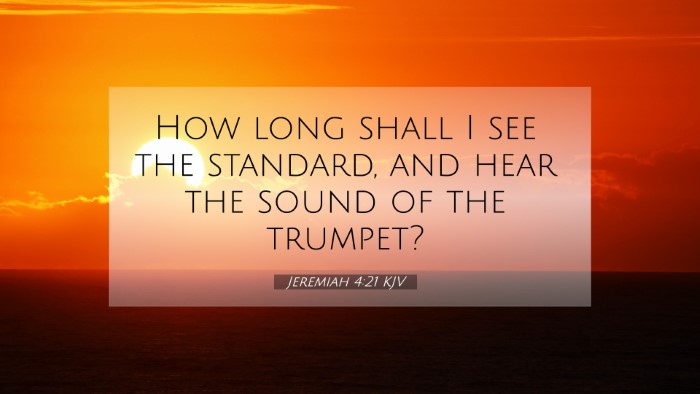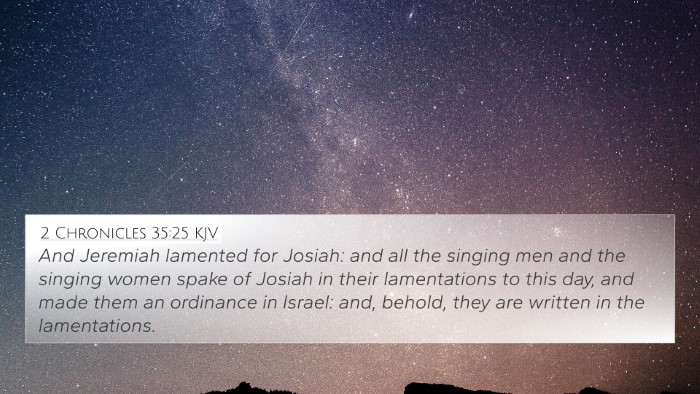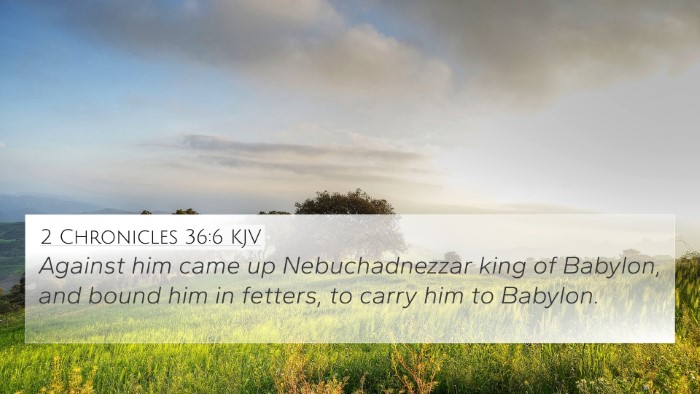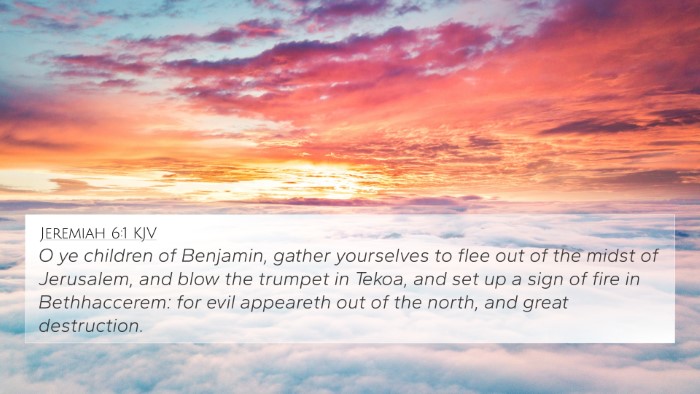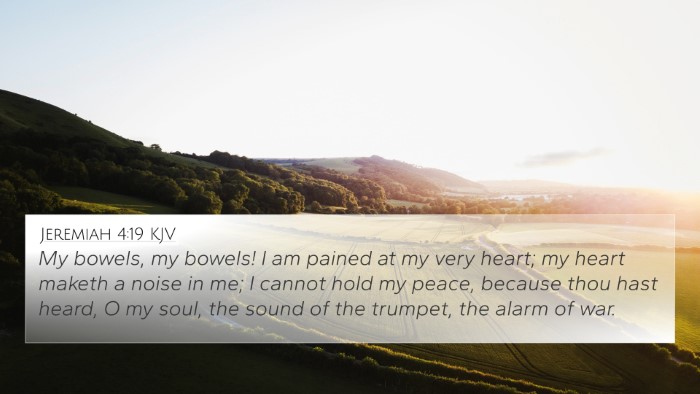Understanding Jeremiah 4:21
Context of Jeremiah 4:21: This verse is part of the prophetic writings of Jeremiah, where the prophet warns of impending judgment and the consequences of Israel's disobedience to God. The urgency conveyed in the message reflects the dire situation of the people at that time.
Verse: "How long shall I see the standard, and hear the sound of the trumpet?" (Jeremiah 4:21)
Meaning and Interpretation
The phrase "How long shall I see the standard" indicates a longing for a clear sign or signal, emphasizing a sense of urgency for both the prophet and the people. Jeremiah's question reflects not only his anxiety but also the need for a resolute answer as the impending disaster approaches. Through various public domain commentaries, we gather a deeper understanding of the insights this verse presents:
- Matthew Henry:
Henry emphasizes the despair and uncertainty felt by Jeremiah. The "standard" refers to a military banner that signifies wartime readiness, portraying the seriousness of the situation. Jeremiah's lament showcases a longing for peace amidst impending chaos.
- Albert Barnes:
Barnes interprets the "sound of the trumpet" as a call to arms or a warning signal. This call embodies the urgency of preparation and the readiness required from God's people in light of the approaching judgment, making it a poignant moment of alertness and reflection.
- Adam Clarke:
Clarke ties the verse to the broader theme of spiritual warfare, emphasizing that Jeremiah's cry represents the collective suffering of a people disconnected from their God. His rhetorical question serves as a call for repentance and a return to God to avert disaster.
Cross-References for Jeremiah 4:21
This verse can be cross-referenced with several other Biblical texts that relate to its themes:
- Isaiah 5:26 - “And he will lift up a standard to the nations from far.” This verse emphasizes the notion of a signal or standard in the context of judgment.
- Hosea 5:8 - "Blow the horn in Gibeah, the trumpet in Ramah." A correlation to calling for readiness and warning among the people.
- Jeremiah 6:1 - “Flee for safety, you citizens of Benjamin! Gather yourselves to flee from Jerusalem! Sound the trumpet in Tekoa!” This verse illustrates the call for action and alertness among the people.
- Joel 2:1 - “Blow the trumpet in Zion; sound the alarm on my holy hill.” This verse parallels the urgency of proclamation found in Jeremiah 4:21.
- Ezekiel 33:6 - “But if the watchman sees the sword coming and does not blow the trumpet to warn the people...” This stresses the responsibility of prophets to sound the alarm.
- Matthew 24:31 - “And he will send out his angels with a loud trumpet call...” This New Testament verse connects the theme of alertness and divine proclamation through trumpet calls.
- 1 Thessalonians 4:16 - “For the Lord himself will descend from heaven with a cry of command, with the voice of an archangel, and with the sound of the trumpet of God...” Highlights the continuity of the trumpet motif in relation to God's intervention and eschatological significance.
Thematic Connections
Using ther dynamic keywords such as Bible verse cross-references and connections between Bible verses, we can see a connected web of meanings around the themes of desperation, call to action, and divine judgment.
Tools for Bible Cross-Referencing: To fully engage with such Biblical texts, applying a Bible concordance or Bible cross-reference guide can significantly enhance understanding. Exploring different cross-referencing Bible study methods can help solidify one's grasp of the intertextual dialogues present within scripture.
Summary of Insights
Jeremiah 4:21 exemplifies a poignant moment in the prophetic narrative, marked by a call for urgency and readiness. The echoes of this plea resonate through various texts both in the Old and New Testaments, establishing a rich context for spiritual vigilance. Textual parallels serve as a fundamental resource for understanding the overarching themes found throughout scripture, reinforcing the necessity for comprehensive Bible study.
As we ponder the depths of this verse, the principles of inter-Biblical dialogue surface, urging us to draw meaningful connections and reflections from the totality of God’s word.
